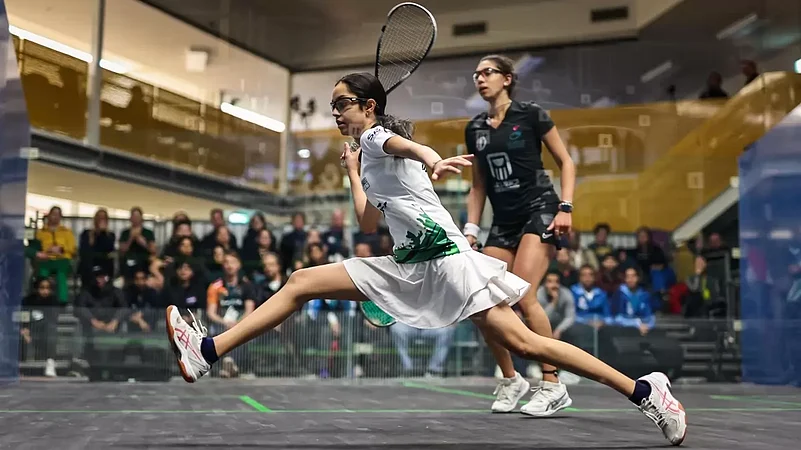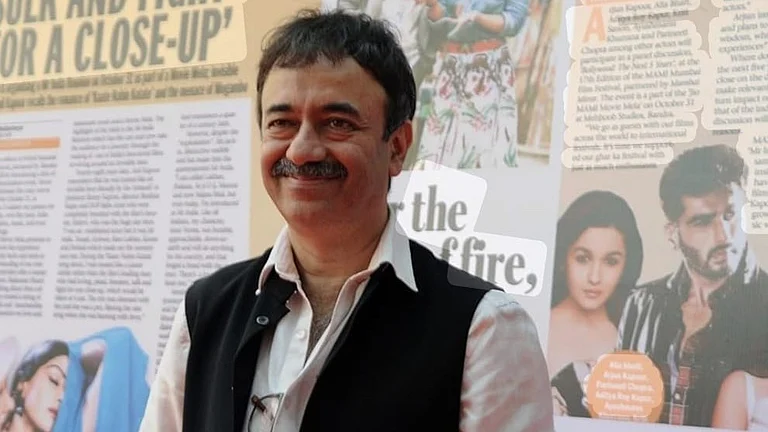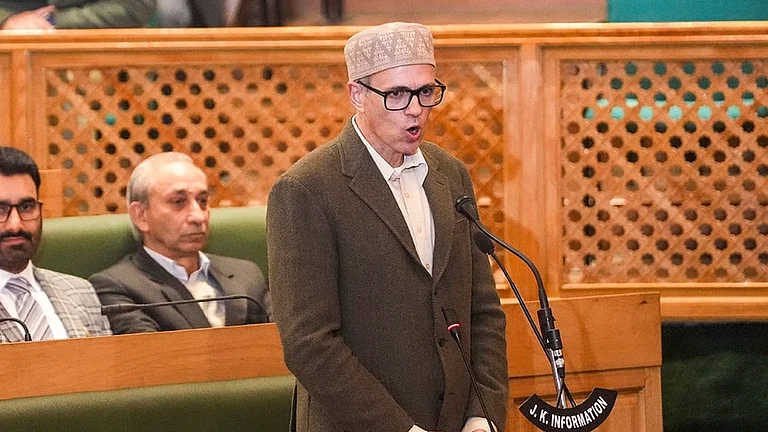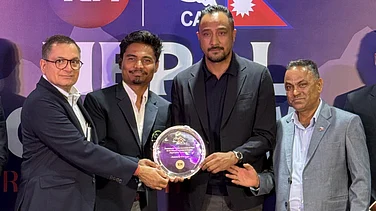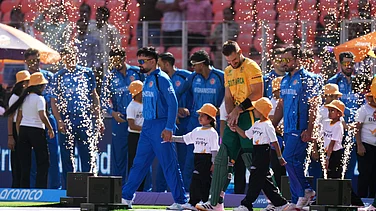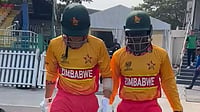Being a professional Indian athlete does not commonly entail going for the Asian Games while preparing for your Std X board exams. But then, the adjective ‘common’ scarcely describes Anahat Singh’s journey.
The 15-year-old squash player has risen through the ranks by punching above her weight and years. Singh won the Asian Junior Championships Under-15 title in Thailand last year, and followed it up with another Asian title in the Under-17 category in August 2023. She also was the youngest Indian athlete at the Birmingham Commonwealth Games.
Singh has been competing on the senior international circuit ever since, and now finds herself in the mixed doubles and women’s team squads for the all-important Hangzhou Asian Games starting this week. With her Std X exams coming up next year, she is not ignoring academic responsibilities either.
The Delhi girl is aware of her talent, but also of the gulf of experience between her and some of the more accomplished senior players. She relishes every opportunity to rub shoulders with and learn from them. Singh is currently doing just that at the Indian Squash Academy in Chennai, where the squash contingent’s camp for the Asian Games is underway.
Edited excerpts from a phone interview with Singh.
As a rare early teenage international squash player from India, how's the journey been like for you?
It was a huge change suddenly. Before I went for the Commonwealth Games last year, I was only playing in junior categories and interacting with people who were my age or younger than me. But in the matter of a month, it all changed.
I was now interacting with people who were so much older than me and with so much more experience. Being around people who are a lot better at the game helped me learn quickly.
The 2022 CWG was your first big event. A year hence, how did that experience help you grow?
That tournament didn’t help much in the way I played, because I didn't go there to win or get a medal. I didn't really expect anything.
It was for the experience and understanding of what all I need to do to reach that level and how all the top players are playing — just watching them play and talking to them, even the Indian players.
What major differences did you perceive when you made the jump from juniors to seniors?
Playing senior tournaments is very different from juniors because every single match is tough and you have to put in your 100% in each match. In juniors, it's not like that. It only starts getting tough after the semifinals.
Do you think the recent Asian Junior Championships triumph and the CWG experience will hold you in good stead at the Asian Games?
Yes. Since the player lists at these tournaments are similar, I know what to expect now — what level they are at, how much I have to train, what I have to do before the match and in preparation for the match.
Earlier, in the first few tournaments, I didn't know what to expect. I was just showing up for the match. But now, I prepare better and do a full match analysis each time. I can’t go into a tournament like the Asian Games without that level of preparation.
In light of this evolution, do you have different expectations from yourself now than at the CWG? What does going to the Asian Games as a 15-year-old mean to you?
Right now I am still not at the level where I can compete with all those top players. I still need to put in a lot of work.
I'm playing the team event and mixed doubles at the Asiad. In mixed doubles, Abhay (Singh) and I had won a (bronze) medal in one of the ranking tournaments with the same field as the Asian Games. So we're expecting at least a bronze this time.
In the team event, there’s Joshna (Chinappa), Tanvi (Khanna) and Dipika (Pallikal), so even if I'm not able to give my 100 per cent, they’ll cover for it. Either way, we're expecting a medal because even our ranking (India are seeded third in the event) says that we should.
What advice do you have for other girls who wish to take up sport?
I’d tell them to not stress and take too much pressure. When you're starting off, just do it because you love it.
Are there any entry barriers or gender disparities in Indian squash for women?
Earlier they used to have higher prize money for boys than girls. But it's all settling down slowly and they're making it equal for both because they are realizing that the level of competition is almost the same.






